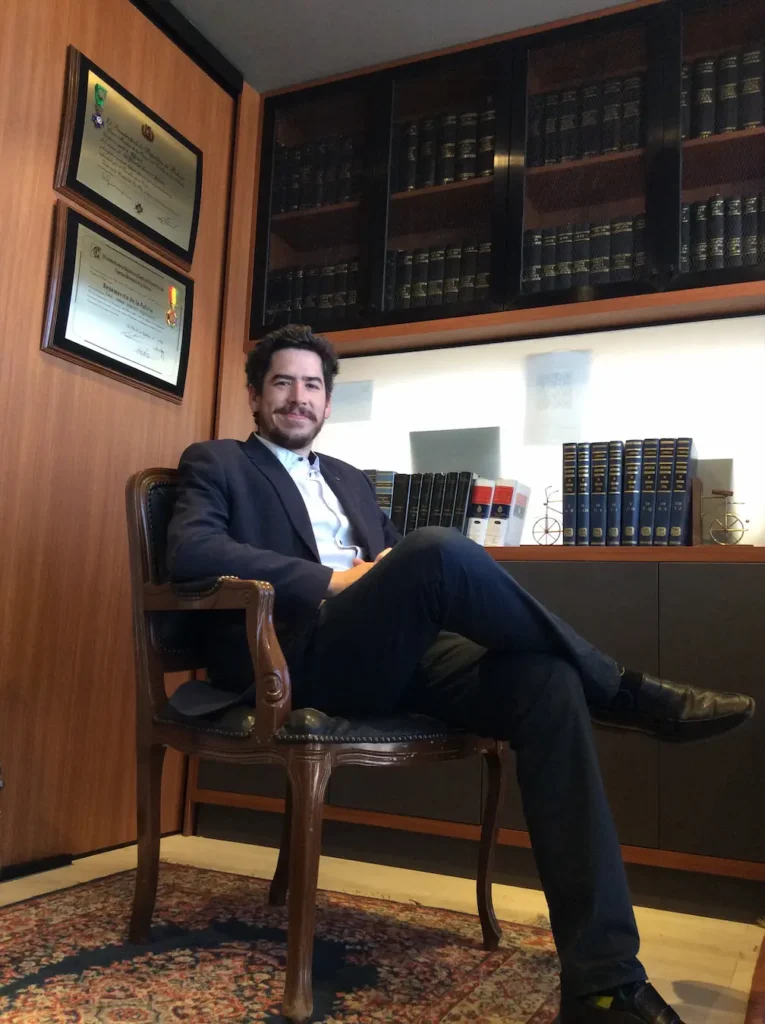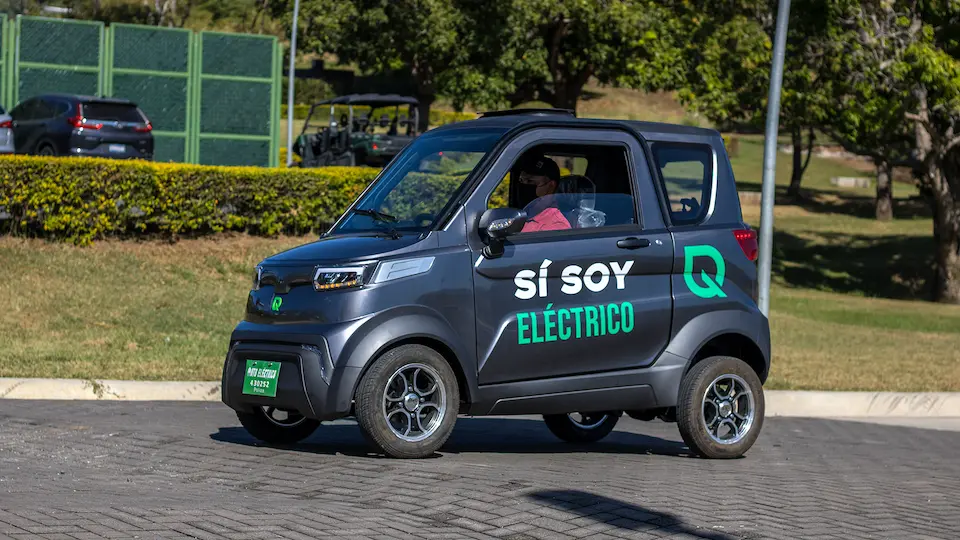“Look out, Telsa,” the Wall Street Journal announced in April. “High in the Andes, the electric-vehicle revolution has arrived.” But breaking new ground as Bolivia’s first EV manufacturer is just the start of Quantum Motor’s ambitions. We’re honored to have co-founder Carlos Soruco share his perspectives on EVs, lithium, and micromobility overall in Latin America. Highlights follow.
“There is a great need—and opportunity—for private-sector businesses to get involved in the EV industry in Bolivia and Latin America.”
Talk about Latin America’s EV sector. How is it different—and why is it so promising?

The Latin American market is massive, with huge potential for growth thanks to abundant natural resources, growing urbanization, and increasing demand for sustainable transportation solutions.
Electromobility in Latin America is very different than in the US and Europe. Driving speeds are not as high due to traffic and the distances driven daily are generally shorter than in other countries. Additionally, people in Latin America have lower incomes than those in the US and Europe.
Quantum provides a cheap, compact, and comfortable vehicle to drive—in other words, electric mobility at an affordable price. Our smaller, electrically powered vehicles have been well-received so far. Customers are very happy with the savings and convenience. Quantum cars can be charged from any common electrical outlet, making it easy for drivers to charge their vehicles at home or on the go. We don´t need the extra infrastructure of charging points.
Vehicle sales have been growing in all countries, including Bolivia, Peru, Paraguay, and El Salvador. In fact, El Salvador has even exported vehicles to other Central American countries.
“We believe in compact urban electromobility. Quantum is the car created in Latin America, for Latin America.”
What do you see as the main challenges to EV adoption?
Although the long-term operational costs are lower for EVs, the higher upfront investment can discourage potential buyers. Quantum has been developing financing options to help customers buy their cars. We have partnerships with financial institutions in all the countries where we operate, which offer us lower interest rates than those for combustion vehicles. We are also developing a mobile app, allowing customers to choose the product they like best and different payment modalities.
Also, some consumers still hold misconceptions about EVs, such as concerns about battery life, maintenance costs, and overall performance. Educating the public about the advantages of EVs in terms of environmental impact, lower operational costs, and improved technology is essential for increasing adoption and reducing our reliance on fossil fuels.
The lack of consistent and robust government incentives and policies to promote EV adoption can also hinder the transition to cleaner transportation. Supportive policies such as tax incentives, rebates, and subsidies play a vital role in encouraging consumers to switch to EVs.
The charging infrastructure in Bolivia has grown since the founding of Quantum, but there is still room for improvement. We’re working in partnership with the governments of each city to expand the availability of charging points and make it easier for drivers to charge their vehicles.
In the near future, factors such as government support, technological advancements, and increased demand for electric vehicles will influence the growth of the charging network in Bolivia. And as charging technology continues to improve, it is possible that in a few years, the charging speed will be sufficient enough that fewer external charging points are required.
Finally, another critical challenge hindering widespread EV adoption is the battery production process and supply chain. To support EVs, new mining and supply chains must be established. The production of EV batteries requires a significant amount of minerals, leading to extensive mining and transportation of materials.
Talk about Quantum’s work producing batteries.
 Quantum Batteries holds a distinctive position in Bolivia, standing as the sole factory with our characteristics in the country. Our customer base is diverse and includes individuals and businesses seeking battery solutions for a wide variety of applications, such as electric vehicles, toys, and tools powered by batteries. We also provide lithium batteries for energy storage for residential, commercial, and industrial applications.
Quantum Batteries holds a distinctive position in Bolivia, standing as the sole factory with our characteristics in the country. Our customer base is diverse and includes individuals and businesses seeking battery solutions for a wide variety of applications, such as electric vehicles, toys, and tools powered by batteries. We also provide lithium batteries for energy storage for residential, commercial, and industrial applications.
The process of producing lithium batteries starts with the classification and quality control of the lithium cells. Some cells come from YLB in Bolivia, but most are from abroad. After that, the battery pack is designed, and the cells are automatically welded together with our CNC welding machine. The battery management system is then installed and programmed, and multiple quality tests are performed to ensure the safety and quality of the batteries.
Commonly, we produce batteries ranging from 50 Watt-hours to 6 kWh, but we can also make much larger batteries for electric vehicles or storage with the current capacity of our machinery.
The advantages of producing smaller batteries include faster production times, easier handling, potentially faster charging times, and of course, less cost for the client.
In general terms, the size of the battery ultimately depends on its intended use and the requirements of the application it is being used for.
Although battery production has not yet begun, we are partnering with Potencia Industrial in Mexico to combine the expertise and capabilities of both companies to efficiently produce high-quality batteries in the near future. Potencia Industrial has one of the biggest laboratories for lithium batteries and is a leader in the design, manufacture, and repair of efficient electric motors and generators for special applications.
Where do you see the next investment opportunities in this sector?
As the demand for electricity to power EVs increases, there is an opportunity for businesses to invest in renewable energy sources such as solar, wind, and hydroelectric power. Also, providing insurance solutions tailored to the needs of EV owners can be a lucrative opportunity. This could include coverage for battery degradation, charging equipment, and other unique aspects of owning an EV. Furthermore, Latin America is known for its old and crowded public transportation systems. Investing in electric buses or electric taxis could be an attractive opportunity for investors.
To receive more business and financial information about Quantum and its Series A investment opportunities, do not hesitate to contact us.
